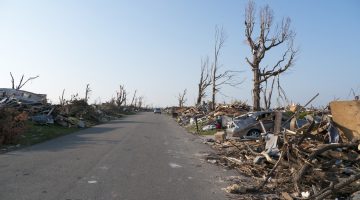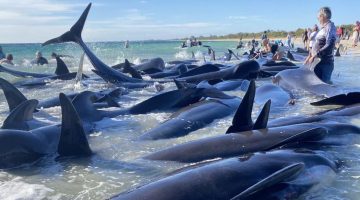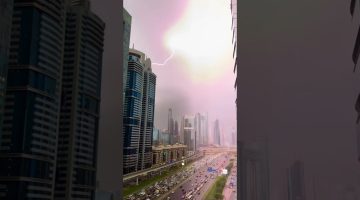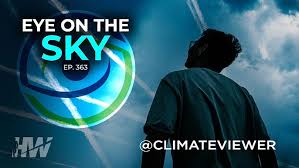Dr Patrick Moore, the co-founder of Greenpeace, shares how he came to join the fledgling group that founded Greenpeace, the bold endeavours and significant victories obtained by the young organisation during its early years, and the details behind his decision to walk away from the organisation after 15 years of devoted involvement. Moore’s comprehensive understanding of the Earth’s geologic time scale and contextualisation of climate change, CO2 concentrations in the atmosphere and extreme weather events, among others, is solid and fascinating. A true environmentalist, Moore is a rare example of someone who placed his principles above all else.
Nadya Swart
See timestamped topics below
00:00 Dr Patrick Moore on growing up in absolute wilderness
02:16 On doing a Bachelor of Science in Forestry and Biology, followed by a PhD in Ecology after getting certified
02:54 How joining a fledgling group of people whose aim was to stop nuclear testing began Greenpeace
04:38 On the efforts of Greenpeace leading to President Nixon’s cancellation of future tests of nuclear weapons in Alaska, signifying the beginning of the environmental movement
04:58 On going against French atmospheric nuclear testing in the South Pacific
07:02 On Greenpeace’s Save the Whales campaign in the 1970s and active campaigning against toxic waste
11:06 On Greenpeace being hijacked by the political left
12:06 On the separation of science from politics being absolutely essential
13:35 On his book, “Fake Invisible Catastrophes and Threats of Doom.”
17:34 On the history of the temperature and CO2 on Earth
21:54 How human beings have increased the amount of CO2 in the atmosphere by about 50%
22:39 On human beings’ capacity to be evil
24:05 On Net Zero
25:09 On where we would get CO2 from if the world were to abandon fossil fuels and adopt nuclear energy
27:19 On coral reefs and the myth that they are going to die if it gets too hot
28:17 How the consensus is bought and paid for
29:44 How scientists who disagree with the consensus are discredited
31:14 On the claim that extreme weather events evidence catastrophic climate change
33:26 On Intergovernmental Panel on Climate Change (IPCC) reports
36:10 On his decision to walk away from Greenpeace
46:44 On the potential motivation driving climate alarmism
Excerpts from the interview with Dr Patrick Moore
Dr Patrick Moore on human beings’ increasing the amount of CO2 in the atmosphere
We have increased the amount of CO2 in the atmosphere by about 50%. And this is one of the best things that have happened in the history of life. And humans did it inadvertently, just like the shellfish inadvertently caused the CO2 to decline so drastically over half a billion years. We have come back and saved life from a certain demise. No other species could do this; could find the fossil fuels.
On tactics used by climate alarmists and his book, “Fake Invisible Catastrophes and Threats of Doom.”
The reason I called my book Fake Invisible Catastrophes and Threats of Doom is because they are focusing on things that nobody can see and making up stories about them. It’s impossible [to disprove] because you can’t see it. And the first rule of science is observation. You have to observe something; it doesn’t have to be with your eyes, it can be with a microscope or microphone, or it can be with any tool you can imagine.
Radiation is the other one besides carbon dioxide. Those are the two main ones that are in the invisible category. So they blame everything on carbon dioxide practically. And then the other category is remote. And that’s why polar bears and coral reefs are the icons, because, again, hardly anybody can see them or go there.
On his decision to leave Greenpeace
It was an easy decision to make because I had no choice. We started out with a fairly strong humanitarian orientation to save civilisation from nuclear war. That must mean you care about people at least a little bit. And it came to the point where the environmental movement, including Greenpeace, was basically characterising humans as the enemies of nature. We are the enemies of the earth. It was sort of like, “human beings are the only evil species on the planet, and even cockroaches are better than we are” type thing. So this is the high philosophical level, this judgmental idea that human beings are the enemies of nature.
And then came a campaign proposal from people who had no science education. I was the only one who had a formal science education on the International Board of Greenpeace for the whole of those 15 years. My fellow directors, none of whom had any formal science education, decided that Greenpeace should start a campaign to ban chlorine worldwide. That was the slogan. I said to them, “You guys, you got to be a little more nuanced than that because chlorine happens to be one of the most important elements for human life that there is.
In the final analysis, Greenpeace was hijacked by the political left because they were smarter at politics than we were because we weren’t really politicians. We were campaigners. And we knew how to do that, how to get people’s attention, and what the real issues were. And all of a sudden, these guys are saying that chlorine should be banned. And it was just a fundraising program based on incorrect information. So how could I be involved in that? So there was no choice. I had to go.
On the climate change consensus being bought and paid for
If you’re a professor in a university and you don’t go along with the climate thing, you’re not getting any money. Period. With few exceptions, very few exceptions. And this is the consensus. It’s bought and paid for. And that’s what’s going on. And so then all the noise comes from the scientists, from the media, from the Greens. And they’re all in cahoots together, making a whole pile of money out of this. There have always been climate doomsday scenarios. And yet, for some reason, doom has never occurred. I mean, like the end of the earth. It just never seems to come about, no matter how often you predict it.
If you’re working for a living and you defy the narrative of consensus about climate disaster, you’re going to be shunned. And I am shunned by these people.
SOURCE https://www.biznews.com/energy/2023/05/08/climate-patrick-moore
IMPORTANTE!: Il materiale presente in questo sito (ove non ci siano avvisi particolari) può essere copiato e redistribuito, purché venga citata la fonte. NoGeoingegneria non si assume alcuna responsabilità per gli articoli e il materiale ripubblicato.Questo blog non rappresenta una testata giornalistica in quanto viene aggiornato senza alcuna periodicità. Non può pertanto considerarsi un prodotto editoriale ai sensi della legge n. 62 del 7.03.2001.












